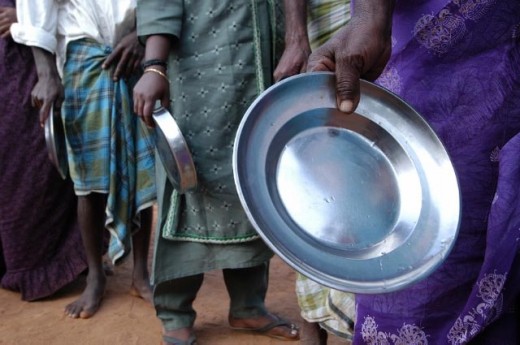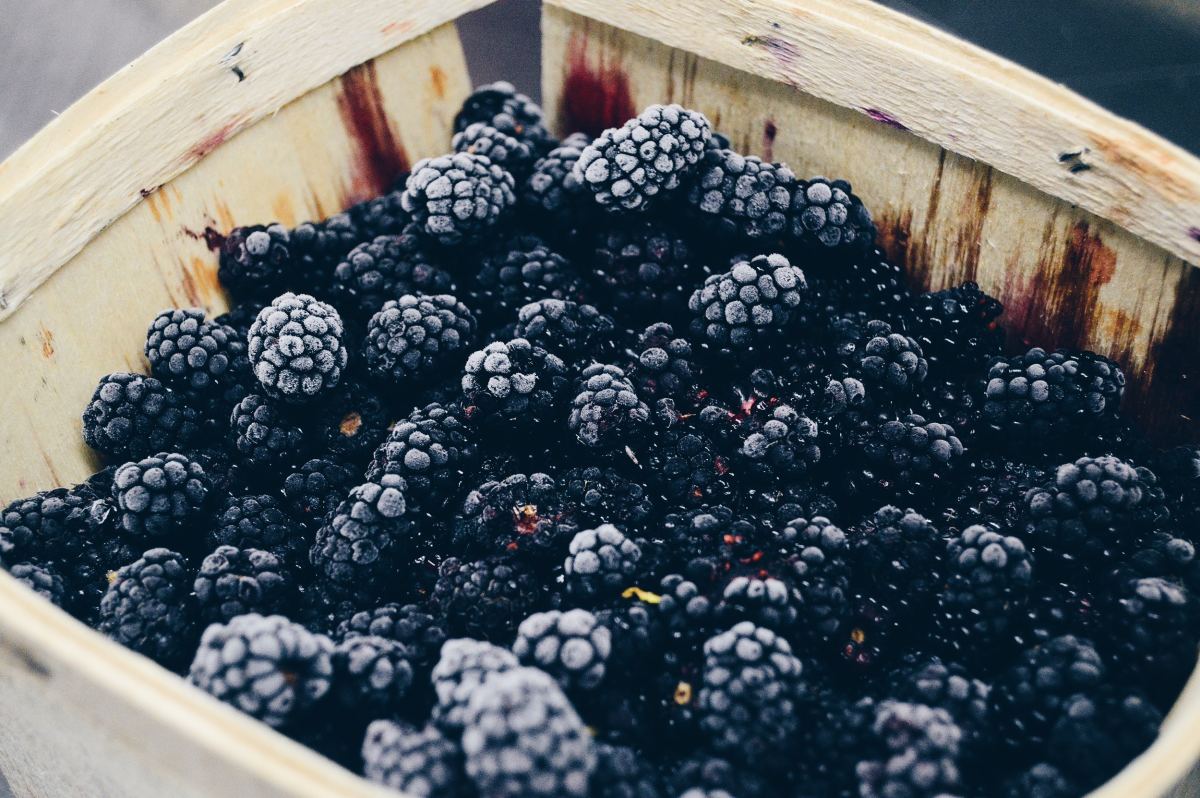If Shopping Centers Ran Out Of Food To Sell...

There has been some talk by conspiracy theorists online about the possibility of food running out in shopping centers for a short period of time. In Norway, a global seed vault was opened in February 2008. This was "established to preserve a wide variety of plant seeds from locations worldwide in an underground cavern" in case of a global crisis.
Currently, on the news, the people of Gaza are basically in lockdown mode. Allegedly, no food or supplies are being allowed in to cater for the Palestinians who are starving and in need of medical supplies and basic humanitarian aid. It makes you wonder - what would you do if this happened to your community? Would you be so desperate as to throw a homemade bomb at the people not allowing you access to supplies to feed your family?
This is not meant to be a hub on international politics but the scenario has got me thinking. What if shopping centers really did run out of food for a short period of time and we had to survive on whatever we had in our homes? What would happen to those who were not prepared? Should we be paranoid and prepare ourselves for this scenario? If so, how could we best prepare for it?
Possible Causes of Food Shortage
Brainstorming some (wild?) ideas, i came up with the following reasons we could experience a food shortage:
- A climate shift can cause droughts and flooding, have a major impact on global food supplies;
- An economic collapse or financial crisis affects commodity prices and can mean some manufacturers go under (less supply = more demand);
- Insect plagues can wipe out large areas in a short amount of time;
- Fungii or other diseases could destroy some plants/crops & avian flu can wipe out many birds;
- Reduced green pastures may mean less food for animals to graze on, hence less animal products (dairy, meats etc);
- A war situation where shopping centers are affected or temporarily closed and people are unable to buy food for a period of time;
- Soil/water quality degradation, land exhaustion
- Labor shortages
- Asteroid colliding with Earth (or similar theory) wiping out massive areas in one fell swoop, causing major loss of life, food etc (among other things)
What Would Happen If There Is A Food Shortage?
As soon as a few days following an announcement that food is no longer available and once domestic stocks deplete, I would imagine that most people would start really feeling the effects of a food shortage.
As desperation sets in, people will no doubt begin to steal their food to survive from farms or other people's houses. As soon as this begins to prove difficult, some people will start killing to feed their families.
If, for whatever reason, electricity is no longer available, a lot of frozen foods will go off, worsening the crisis. There will also be no food for domesticated animals and some may turn savage. It's an ugly picture to imagine but one that is possible.
Further Information
How To Prepare For A Food Shortage
Where there is a food shortage, you would be best prepared if you had the following food items in your home:
- Flour (to make your own bread - note: if there is still electricity available, a breadmaker would also be handy)
- Sugar
- Rice / Pasta
- Cereals
- Powdered milk
- Canned foods (anything from tuna, beans, tomato, soups, etc)
- Herbs/Spices - especially salt for your diet (& to help preserve meats etc if no electricity is available)
- Dried fruits
- Dried legumes - eg fava beans (good source of protein in place of meat), chick peas etc
- Dried seaweed (good source of iodine) - plus you can make sushi
- Nuts
- Jams / honey
- 2 minute noodles?
- If you live on a big property with a fair bit of land, you might want to consider simple things like a herb garden, fruit trees, organic vegetables, chickens for eggs and so on. The idea is to be as self-sufficient as possible and reduce your reliance on other sources.
I am assuming a good source of quality water is still available - people can survive for weeks without food but can die much more quickly without water. One contingency against a water supply would be to install some rainwater tanks on your property.
Looking at the more grim scenario of no electricity, hinted at above, i suggested that salt may be used to preserve meats. Also you'd want to make sure you have a gas bottle and some matches to be able to easily light a fire (although it is easy to substitute gas for other fuels such as leaves/twigs outside).
Digressing from the topic further, it is always a good idea to brush up on survival skills, learn how to forage for food in the wild and learn some basic first aid skills. Perhaps even some self defense skills if things get that ugly.
A possible solution?
One "hope" talked about in the media is that of the biotech solution to the food shortage problem. By 2050 it is said that the world population will reach 9 billion and a "60% food production uplift" is required to sustain this population. Using genetically modified (GM) foods is one option to producing "intensified cultivation, higher yields and greater productivity". GM foods are hailed to have many advantages such as resistance to diseases, cold weather and pests. However there a few concerns regarding the safety of GM foods, their impact on human health (eg introduction of new allergens) as well as the ecosystem (eg increased mortality rates in the monarch butterfly, reduced resistance by pests to pesticides through evolution). As GM foods are relatively new, they are not (yet) as strictly regulated as most other food products.
Survey results
I found these survey results while researching possible solutions:-
A worldwide survey was conducted by the UN. The only question asked was: "Would you please give your honest opinion about solutions to the food shortage in the rest of the world?"
The survey was a huge failure because:
In Africa they didn't know what 'food' meant,
In India they didn't know what 'honest' meant,
In Europe they didn't know what 'shortage' meant,
In China they didn't know what 'opinion' meant,
In the Middle East they didn't know what 'solution' meant,
In South America they didn't know what 'please' meant,
And in the USA they didn't know what 'the rest of the world' meant !
Interesting Links
- Food Shortage 2008
According to the media, we now find ourselves in a Global Food Shortage particularly in wheat and rice with ethanol and farm subsidies getting most of the blame. We need to get some facts straight. - Food Shortage - How To Prepare For The Coming "Food Shortage" With Food Storage Secrets
If you have ever wanted to produce your own cheaper than dirt survival food... - How to Survive the Coming Food Shortage
This article talks about different ways some people have gotten off the food grid - including some people who don't eat at all! (Can you believe it?) - How animals prepare for food shortage
Based on the the Life on Earth Series by Richard Attenborough, look at how some animals prepare for and deal with food shortages. - Genetically Modified Foods: Harmful or Helpful?
Recent studies about genetically-modified foods indicate that GMOs may cause harm to monarch butterfly caterpillars. Corn plants have been genetically engineered using B.t. to be resistant to insect pests...









